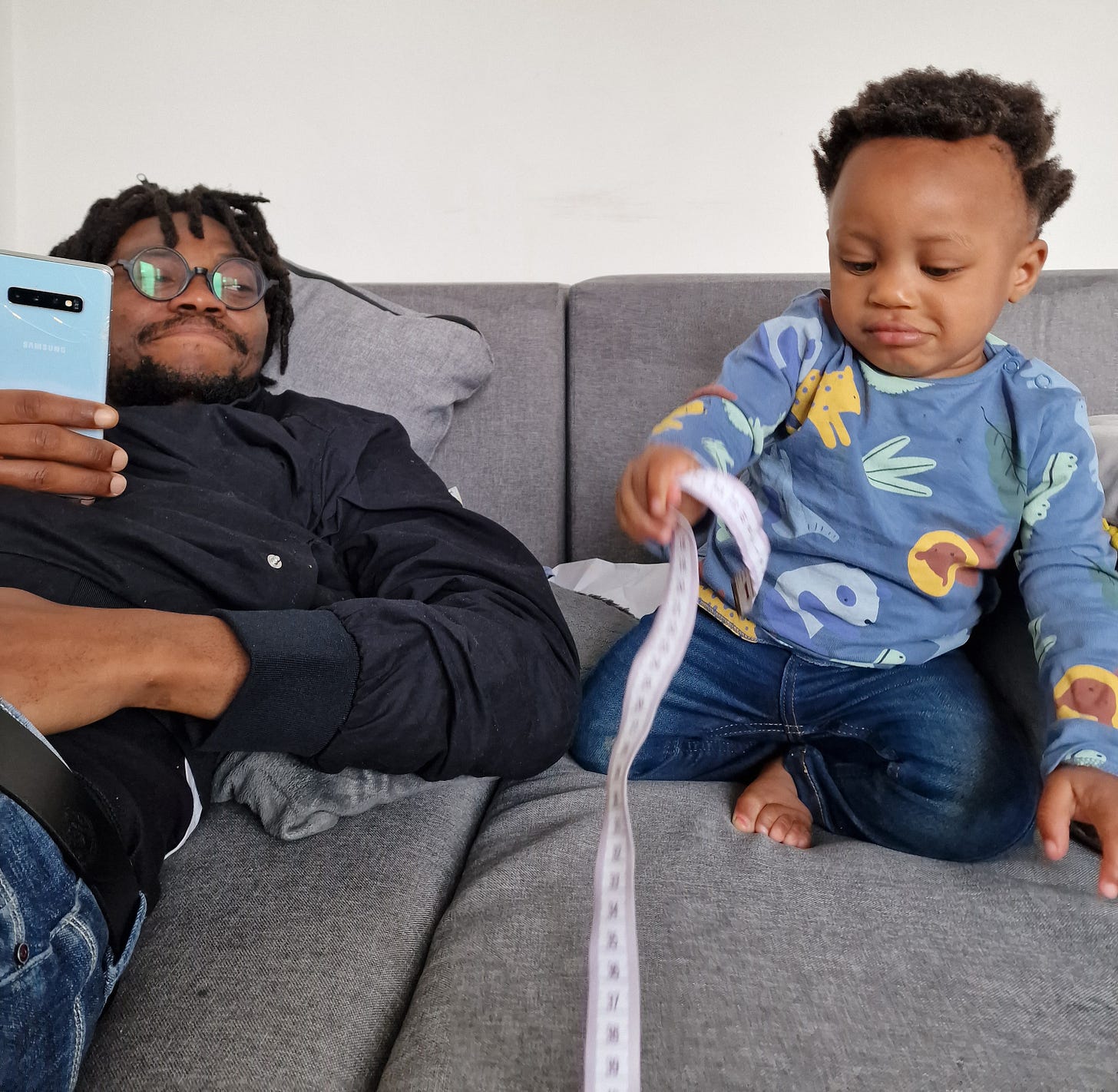An intriguing letter from Solent NHS
A review is a formal assessment of something with the intention of instituting change if necessary.

On Saturday, my family got a letter from Solent NHS. It was addressed to the parent/guardian of Enirekan Summer La. The subject of the letter is health and development review. Apparently, at 11 months to their first birthday, every child's development and health status is reviewed by the UK Government through NHS.
As someone born and brought up in Akure Southwest Nigeria, this was strange. However now being fairly familiar with the UK system, it was not surprising. If there is one important lesson I have picked from how the system works here, it is that innovation is never left to chances. They painstakingly go over a process periodically to understand the journey and improve the experience when neccesary.
True to name, the health and development letter contained "Ages & Stages Questionnaire for 11 to 12 months". It was to be filled by the parents. The questionnaires were divided in six parts. Communication, Gross Motor, Fine Motor, Problem Solving, Personal-Social and Over All. At a glance, ESL excels in proble solving.
However, one of the more interesting questions that intrigued me even as an adult was under Communication. By the way, I am not pretending to understand how the questionnaires would be evaluated but it was not difficult to guess. The fifth question under Communication;
When your baby wants something, does he tell you by pointing to it?
My partner and I use the word ‘baby’ loosely in the house for ourselves and it was easy to put either of us in place of “baby” in that particular question. So I start wondering, if at less than a year, a baby is being reviewed for ability to clearly point to what they want, why do adults expect their partners to know and want for them what they've not clearly pointed out? Every adult will have to answer that on their own.
I also found more interesting questions that could benefit an adult under the Problem Solving and Personal-Social part of the questionnaire. It became clear to me even an adult needs a developmental review of themselves from time to time and you need to be involved consciously to get an objective review of yourself at any stage.
We are yet to complete the questionnaire but so far, but I could tell that the ability to answer the questions correctly reflects how involved I am in the life of my child. It is like having a review test for yourself as an adult, how do you answer correctly for an objective review if you're not involved in your own life?
There are several ways you can take a review of your progress as an adult. I need not go into details but one important lesson is that reviews should be sought to improve progress. Just like the letter from Solent NHS, we are filling it as correctly as possible because we know they are seeking for ways to understand our child’s developement and improve if neccesary.
An average Nigerian adult shies away from any process that could make their inadequacies obvious like a review. I think this is because our own review culture seems to condemn without seeking to understand and improve progress. That needs to stop!
Yours in Fatherhood,




Powerful thoughts. Isn't it just intriguing how virtually every aspect of our kids' lives holds profound lessons on how we as adults ought to lead ours? I particularly love your last paragraph on how our oft-critical review culture in Nigeria has conditioned us to resent, or dread, rather than proactively seek review/feedback which is in fact a tool of improvement and growth. This is something I still struggle with too but am continuously working on—my perception about reviews and feedback. I think it's called a growth mindset. Thanks for sharing this stimulating read to start my week!
Bamidele